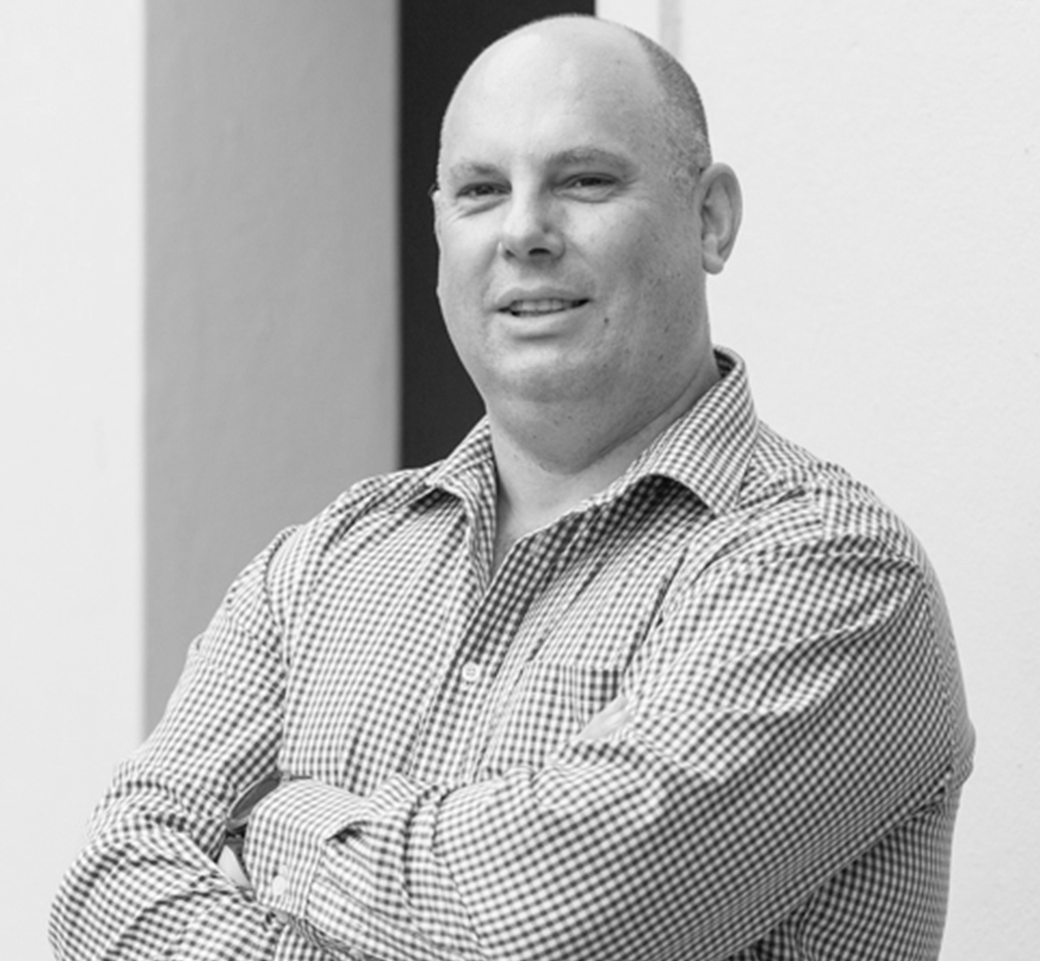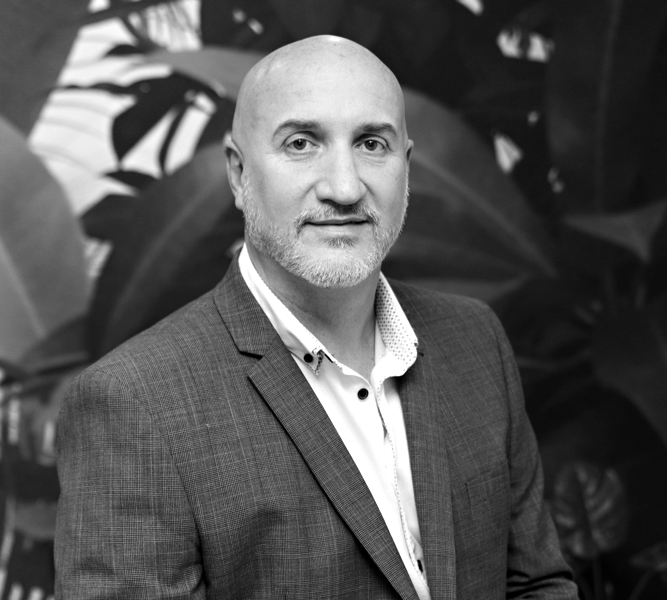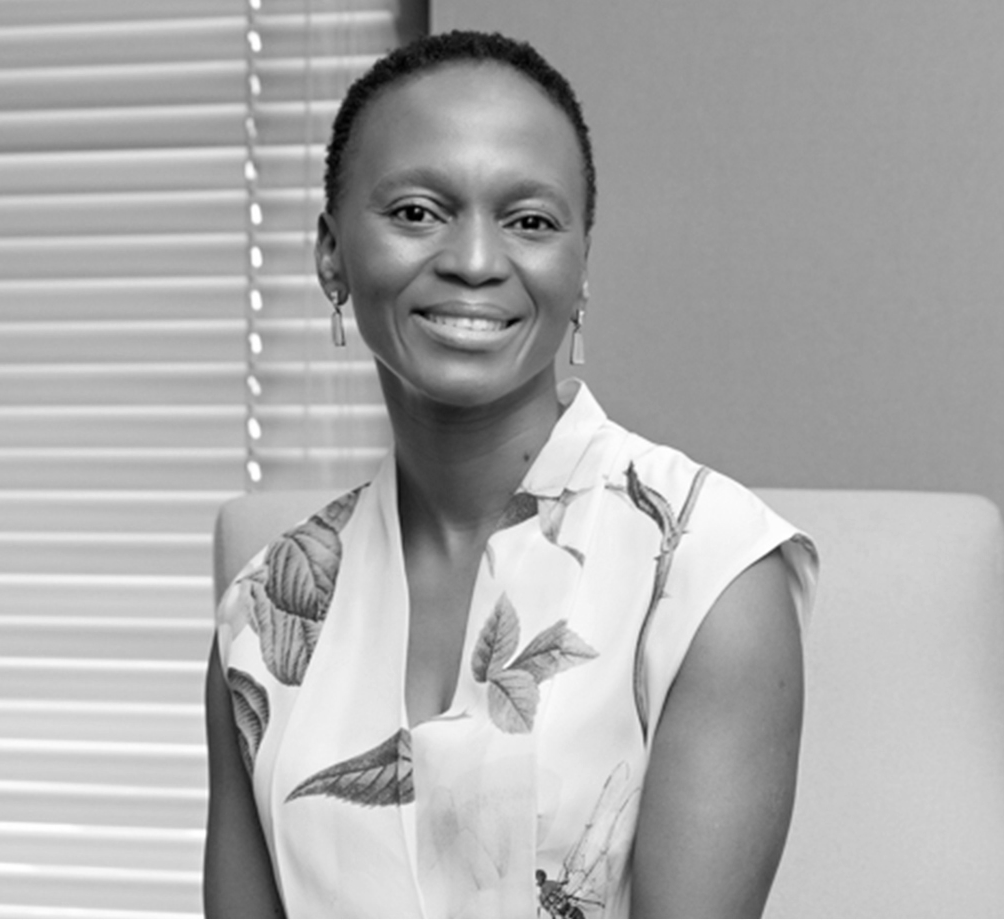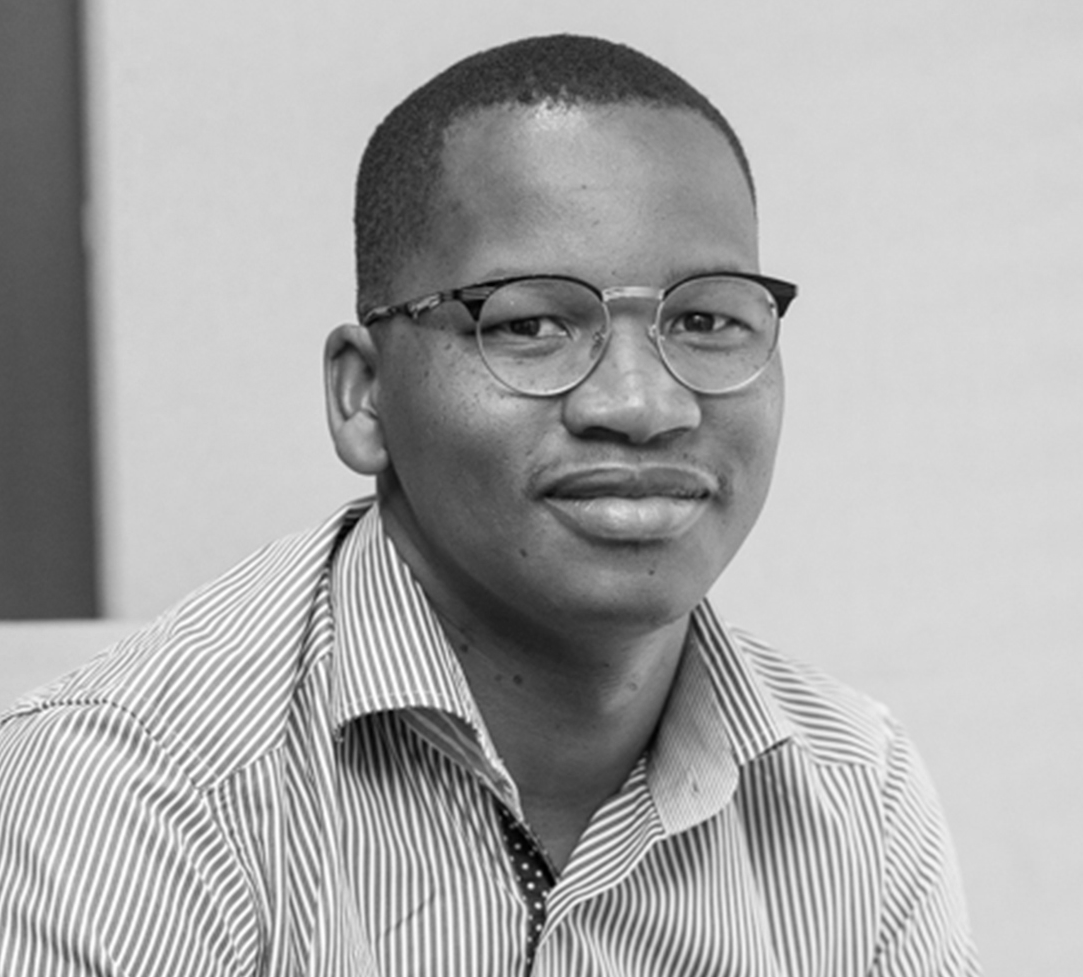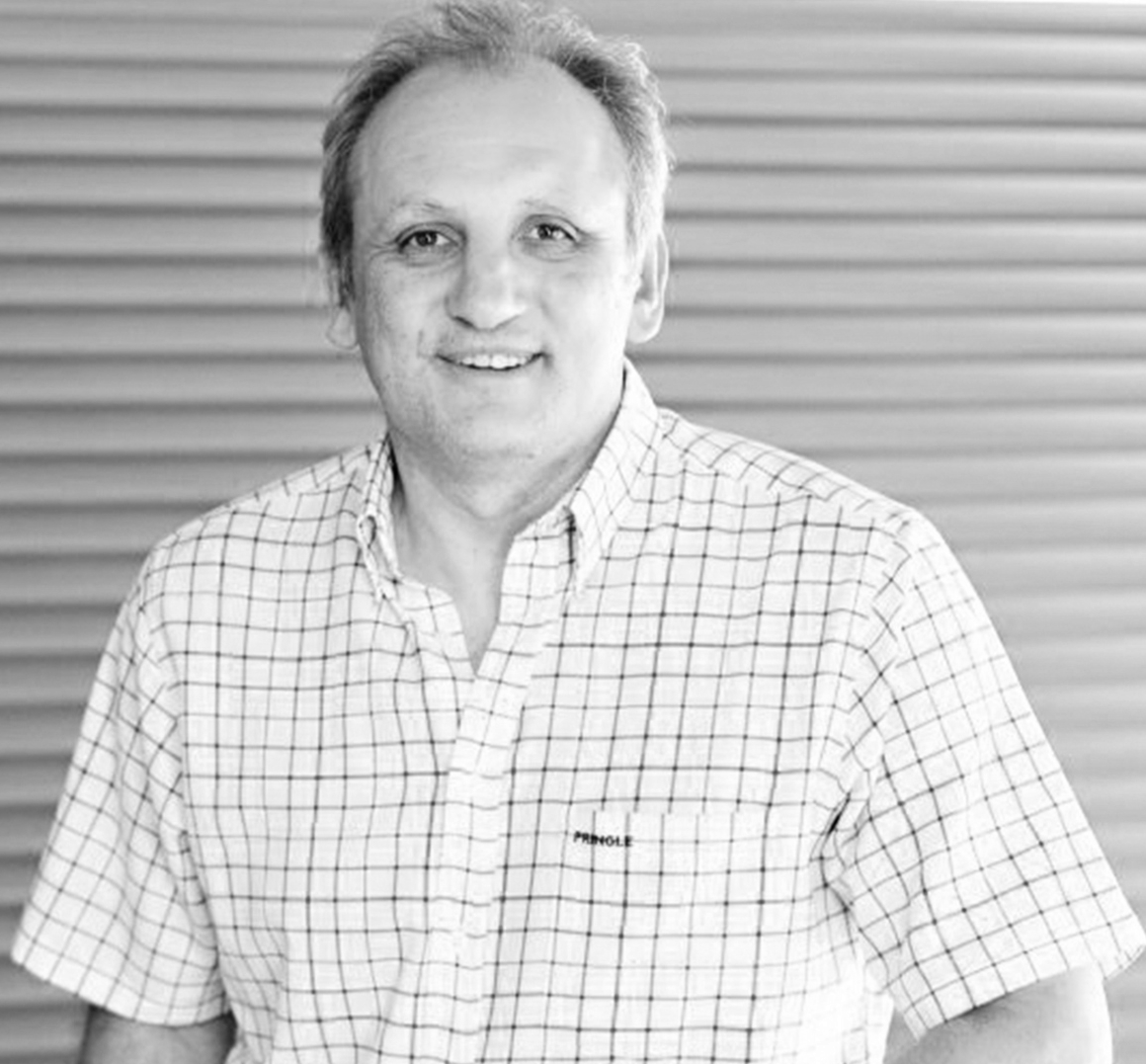12: Pieter de Wit
Chief Financial Officer: Afrimat
Don’t waste a good crisis. ‘We are a very entrepreneurial-type culture in Afrimat and we always look for opportunities in the crisis.’

CIARAN RYAN: This is CFO Talks and today we’re joined by Pieter de Wit, chief financial officer at Afrimat, a construction materials and mining company listed on the Johannesburg Stock Exchange. Pieter hails from the Cape and studied first at the University of South Africa in accounting, auditing and tax. Then he went onto Stellenbosch University where he obtained an MBA cum laude. He’s also a chartered accountant and has been with Afrimat for more than ten years, before that he was a senior manager at PwC. Pieter has held various positions within the Afrimat Group from company secretary to regional director. So we are delighted to welcome Pieter de Wit to CFO Talks, welcome Pieter. Pieter, when I heard that you were coming on today I had a look at the Afrimat share price and it’s been quite a performer. The share price is now double where it was two years ago, the results for the last six months show revenue up 28%, although headline earnings were down about 8%. We’re hearing negative news about construction companies in general in South Africa, for example, Group Five, which is now in serious financial trouble. Give us a quick rundown of the conditions in your business sector and how you manage to keep performing at the rate that you do.
PIETER DE WIT: Firstly, I must comment that we are in a closed period, so I cannot comment on February results, we’re publishing our results in May. But if you look at the financials that we published at the interim phase, you will see that the revenue is up 28% and that is mainly because the iron ore business has started contributing revenue to our business. The operating profit is slightly up 4%, the iron ore business has got a big impact on that but it was in the ramp-up phase in the first six months of our results.
CIARAN RYAN: So the iron ore business is quite new to Afrimat?
PIETER DE WIT: The iron ore business is quite new, we started two years ago when we bought the business out of business rescue and then we had to fix the plant and we had to do a lot of work on the plant. It was in a ramp-up phase in the first six months of this financial year, so it’s producing quite nicely at the moment.
CIARAN RYAN: Is it cash positive at the moment?
PIETER DE WIT: It is cash positive.
CIARAN RYAN: Wow and this is all within six months, a year?
PIETER DE WIT: Yes, if you look at Afrimat’s business, about eight years ago we had some strategic discussions at board level and we said we are very much exposed to the construction sector, which is a cyclical sector, and at that stage we said we want to diversify away from construction materials and add diversity in our portfolio of mines, we are mainly a mining company, a mid-tier open-pit miner, we see our core competency in that. So we look at different types of stone, different types of minerals that you can mine. At that stage we added a few industrial minerals resources to our business, which is dolomite and limestone predominantly, and then, as I said, we added iron ore to our portfolio in 2016. Your question is why are our results still looking good, I think it’s mainly contributed to our strategy of diversification. We saw the construction materials business down over 20% on the previous year in this interim phase or interim period but that was offset by the contribution from the iron ore business.
Exporting iron ore
CIARAN RYAN: The iron ore is located in the Northern Cape, right?
PIETER DE WIT: Yes, the iron ore is located in the Northern Cape, it’s next to the Sishen mine.
CIARAN RYAN: Okay, so you take the Sishen railway line, you send it down to Saldanha Bay for export, is it all exported?
PIETER DE WIT: It’s all exported, yes.
CIARAN RYAN: Is there any processing involved in the iron ore?
PIETER DE WIT: Yes, it’s mainly the same process of mining, you do need more geologists and metallurgists to understand the resource but it is also open-pit mining, you basically crush it down to two different sizes and then you need to put it through a dense media separation plant, which extracts the iron ore out of the normal stone that you can’t sell.
CIARAN RYAN: I think it’s quite interesting, off the subject but the Sishen-Saldanha railway line is just exporting iron ore from the Northern Cape, mainly from Kumba but obviously from Afrimat and a few others as well, and I believe some of these trains are like ten kilometres long.
PIETER DE WIT: Yes, I think some of the Kumba trains are that length.
CIARAN RYAN: It’s unbelievable.
PIETER DE WIT: It is unbelievable. The ones that we send are 100 tons per wagon and there are 114 wagons, a wagon is about six or seven metres and that’s not that long. That’s called a rake, we only load one rake and then we’ll send it down. In Kumba’s case I am not exactly sure but they do four or five rakes at a time.
CIARAN RYAN: Talk about the construction business itself because the construction business in South Africa peaked in the years up to about 2010 when we had the FIFA World Cup here and I guess it carried on for a couple of years after that because there was a lot of investment happening in infrastructure in football stadiums, in hotels and that sort of thing, what has happened in construction generally since then?
PIETER DE WIT: You will see on our website that we publish something called the Afrimat construction index, and our CEO, Andries van Heerden, and myself were telling the market that the construction sector isn’t that bad. If you look at that construction index that we published we are at higher levels than what we were in 2010. If you look at the current year’s levels it is a bit down on last year but the construction sector is not dead. If you look at the companies that are falling over or are in business rescue and have got some difficulty with survival, they made a lot of their strategic decisions outside of South Africa. Some of these companies had made some – I won’t say bad decisions – but other strategic decisions and that is hurting them.
CIARAN RYAN: Afrimat is predominantly South Africa-focused; do you have any interest outside of South Africa?
PIETER DE WIT: Afrimat is predominantly in South Africa, the only outside operation that we have is in the northern part of Mozambique in Palma and Pemba, where we are specifically situated to supply the liquefied natural gas project of Anadarko if that comes off.
CIARAN RYAN: What are you supplying?
PIETER DE WIT: Construction materials, it’s stone, sand and bricks and blocks.
CIARAN RYAN: That’s quite interesting, the big gas discovery off the coast of Mozambique, they’re talking about this being a massive project in the next 20 years. So you’ve positioned yourself there, that’s not a temporary thing, you are there as a permanent base, right?
PIETER DE WIT: Yes, we are, at the moment we are supplying into resettlement village, what Anadarko needs to do before they can start building is to resettle all the people who are living in that area where they want to build the plant and we are busy supplying the materials into the resettlement village and once that is done, Anadarko needs to make the final investment decision on whether they are going ahead with that. If they are going ahead it’s a massive project.
Afrimat construction index
CIARAN RYAN: I want to go back to this Afrimat construction index that you spoke about and you said that things are not as bad, in fact, the level of activity is higher than it was in 2010. How do you measure that?
PIETER DE WIT: We use economist, Roelof Botha, to assist us and he uses different indices to measure that, I think half of it is softer indices…
CIARAN RYAN: Perceptions of managers and that sort of thing.
PIETER DE WIT: Ja, like the Building Confidence Index but he also uses hard data like building plans passed, hardware sales and those types of things.
CIARAN RYAN: Interesting because that’s so contrary to what we are reading in the press and I guess that’s fairly encouraging, so the economy at a construction level…there’s still activity.
PIETER DE WIT: There is still activity, it’s not that activity is totally dead but it’s not at the same level that it was a year or two ago but there is still activity.
CIARAN RYAN: Let’s move on and talk about yourself a little bit and your journey to becoming a CFO at Afrimat, we’ve mentioned that you studied at the University of South Africa and then at Stellenbosch University you got an MBA, tell us about your career and how you got here.
PIETER DE WIT: Before I joined Afrimat in 2008, which was basically a year after the listing, I worked for PwC, I did my articles there. I started straight out of matric, so I did all my studies
part-time through Unisa, I wrote my CA exam part-time and I later became manager at PwC. Then I got the opportunity to join Afrimat a year after its listing, as the group accountant. Afrimat was a lot smaller at that stage, so I joined them as group accountant, we added the roles of company secretary, as well as chief audit executives and because of the size of the company at that stage I started studying my MBA in 2012. Halfway through my MBA I had some one-on-one discussions with our CEO and he said if I am up for the challenge he needs someone to run the KwaZulu-Natal operations. So he asked me to go and run that business, so I basically moved out of finance to head up that region.
CIARAN RYAN: So you got operational experience as well?
PIETER DE WIT: I got operational experience for just over two years, I had to run quite a business, a brick and block business and a ready mix business. It was a steep learning curve for me but I got a lot of operational experience during that time. Then at the beginning of 2016 the CEO asked me to come back, our previous CFO had decided to retire at that stage, so Andries asked me to come back as CFO. So I moved back to Cape Town to head up the CFO position from the beginning of 2016.
CIARAN RYAN: Your job as CFO of a stock exchange company, I guess, is particularly onerous, there’s a lot of reporting standards, you’ve got IFRS, you’ve got the JSE listing requirements that you’ve got to adhere to, how do you manage to keep on the right side of this regulatory mountain?
PIETER DE WIT: I agree, there are a lot of regulations, even on the mining side there’s the Mining Charter and the Mine Health and Safety Act, so there are a lot of regulations. For us to keep up to date with all the regulations we’ve got a team of people, including our own employees, our sponsor, consultants in some cases, to help us stay compliant to all the regulations. Our own team of employees attend regular updates on all the major legislation like the Companies Act, the JSE requirements, we attend regular updates on that to stay ahead.
CIARAN RYAN: I guess that’s one of the big changes that’s happened to any finance executive or chief financial officer, is how much regulation you have to adhere to in the economy today, compared to, say, ten years ago, do you agree with that?
PIETER DE WIT: I agree with that, there’s a lot more regulation now than what there was ten years ago.
CIARAN RYAN: Even environmental regulations because if you’re in mining you’ve got a lot of environmental responsibilities too.
PIETER DE WIT: Yes, there are a lot of environmental regulations, there are a lot of safety regulations. So, yes, compliance is important but that shouldn’t be your focus because complying doesn’t determine whether the business will make money or not.
CIARAN RYAN: Where do you sit on this thing, I was going to ask you how much time do you spend on compliance, how much time do you spend on people issues? You’ve got to make sure the business is funded, a lot of CFO’s spend a huge amount of time ensuring that they are liquid, borrowing money, raising money, paying back money, where do you spend your time.
PIETER DE WIT: I do spend my time on making sure that the business keeps on making profits, understanding the risks that the business is facing, understanding the economic environment that we are in and where we are heading, there’s a big focus from the past, where accountants were probably only seen as recordkeeping, to business partners now. You need to sit in front, next to the CEO and see what’s coming and not only reporting. So although compliance is there and compliance is important, you need to be efficient with compliance, so that it doesn’t bog you down and take all your time because your time needs to go into your risks in the business, how do you manage and mitigate the risks, what is changing in your economic and technological environment. On the people side you need to have the right team, the right people in the right places and ensure that they’ve got all their tools to do their work and that they are developed adequately to do their jobs.
Strong relationships with funders and investors
CIARAN RYAN: One of the things we have learnt here at CFO Talks is that chief financial officers are having to develop particularly strong relationships with funders, banks and investors particularly. So people might think that the CFO’s job is primarily recordkeeping, and you mentioned that, and getting the books up to date but I doubt this was ever really the case. You’ve always had to be involved in ensuring that the company remains liquid, that it remains solvent and that it remains profitable. I’m glad you brought up that point about how you can get stuck on compliance issues but if the business is not making money you’re not going to have a business after a period of time. Do you agree with that?
PIETER DE WIT: Yes, I agree with that, that is the most important thing that the business needs to run and the most important thing in the business is cash flow. So coming back to funding, you need to make sure that you’ve got adequate cash resources in your business, whether that’s your own cash resources or whether that’s funding. So it is important to understand where the business is going, are you going to need cash, what is the performance of the business going to be like going forward.
CIARAN RYAN: I attended a talk this morning given by one of the top mining executives in South Africa and he mentioned that South Africa has just come through probably one of the worst periods ever, the presidency of Jacob Zuma, the corruption that we’ve had to put up with, it seemed to embed itself so deeply into the economic life of the country. However, new president in place, new government, there has been a considerable improvement in sentiment, are you optimistic? Have we handled the major obstacles to growth in this country?
PIETER DE WIT: We are very optimistic about what has happened so far, I think there’s still a lot that has to be done but I think the country has turned, the economy has turned but it is a long road to recovery. That said, from an Afrimat point of view we always have the saying that don’t waste a good crisis…
CIARAN RYAN: [Laughing]
PIETER DE WIT: So in a good crisis, we are a very entrepreneurial-type culture in Afrimat and we always look for opportunities in the crisis.
CIARAN RYAN: How would you do that?
PIETER DE WIT: We would look at businesses that are struggling, like the iron ore business…
CIARAN RYAN: Which you bought out of business rescue, so it was a distressed business that you bought.
PIETER DE WIT: It was a distressed business, which we bought out of business rescue. Way before we bought the business we identified iron ore as something that we can add to our business, we made a strategic decision, we identified a lot of assets and then we identified this as a good asset for us and at that stage when we did the acquisition the iron ore price was at its lowest point. So we try and look for opportunities.
CIARAN RYAN: Did you take a view at that time that the iron ore price was going to turn and recover or did you just see that the business was badly managed before and you could do it better?
PIETER DE WIT: Yes, we saw that the iron ore price went south very quickly and that business didn’t react to that price quickly enough and then it went into business rescue. We thought that we could manage it a lot better and that is where we saw a lot of potential in that business.
CIARAN RYAN: I think if you look at Kumba’s results, which came out maybe a month ago or so, one of the improvements that they made was to up the quality of the iron ore that they’re producing. So they have, I guess, different grades of iron ore and just a few percentage points improvement in the grade made quite a material difference to the bottom line. So there obviously, every business has this, there are ways that you tweak that to get the best result. Are you doing the same kind of thing?
PIETER DE WIT: We are doing the same kind of thing. Remember that iron ore that’s in the Northern Cape is a very high quality iron ore, if you sell it in a lumpy format, which is a bigger size, you get a lump premium and at the moment it’s over US$20/ton that you get on top of the iron ore price. So we did some graphs to identify what is happening in the iron ore price and you will see there’s a big drive from China for higher quality iron ore, so you will see there’s an increase in the pricing of the higher quality iron ore. The lower quality iron ore, which is mainly out of Australia, the pricing of the lower quality iron ore is going down but the higher quality iron ore is going up.
CIARAN RYAN: So you’re focused on the higher quality end of the market?
PIETER DE WIT: We’re focused on the higher quality.
Preventing future scandals in the accounting profession
CIARAN RYAN: Let’s talk for a minute about the chartered accountancy profession, you are a chartered accountant, the profession is getting a lot of heat recently for a number of different corporate scandals. People expect the chartered accountants and financial managers to prevent this kind of thing from happening. What do you think the profession needs to do to stop future scandals such as we’ve seen at Steinhoff and VBS Bank?
PIETER DE WIT: I personally don’t think adding more legislation to govern the profession will help, you can’t govern ethics. Ethical behaviour needs to be entrenched in the person’s personal value system, so if you don’t believe in integrity and those types of things in your personal value system, you can’t legislate that. So I don’t think more legislation and more requirements and more ethical standards will prevent that. The one thing that I do think that can help is more severe punishment for when there is unethical behaviour.
CIARAN RYAN: Like what? Jail time?
PIETER DE WIT: Jail time, monetary penalties but yes, jail time and it needs to be swifter because a lot of these cases are dragging out and unfortunately in South Africa unethical behaviour is bigger than just the CA profession. I think the CA profession is an easy target because they do have a lot of ethical standards already, compared to some other professions. So it is an easy target but it’s bigger than the CA profession. By adding more legislation you are not going to legislate it, you need to be more severe with jail time and penalties.
CIARAN RYAN: Right, I guess it comes down to the question of the culture and how embedded is the culture of ethics within an organisation. Maybe talk for a minute about that at Afrimat and how you get around this particular issue.
PIETER DE WIT: We value our values very highly, especially our values like integrity, trust, respect and each one of us in the business values that, we guide ourselves in whatever we do with those values. So I think it is entrenched throughout our business.
CIARAN RYAN: It’s got to be led from the top, right?
PIETER DE WIT: It is led from the top, it’s led by our CEO, Andries van Heerden.
CIARAN RYAN: We’re getting near the end, it’s been fascinating talking to you, Pieter, have you got any recommendations for books, any good books?
PIETER DE WIT: I attended an emerging CFO programme at Stanford recently and I am heading back in May this year, so I am doing a lot of reading in preparation for that programme. It is fascinating to see the new trends and one of the books that they recommend and I started reading is by Daniel Kahneman called Thinking, Fast and Slow.
CIARAN RYAN: Yes, I have not read it but I have heard about the book.
PIETER DE WIT: I’ve only started reading it, it’s good and it’s about decision-making when you have got biases in decision-making and you don’t have all the facts, you make your decision on biases and heuristics basically.
CIARAN RYAN: So is this trying to train you out of that bad habit of being bias in your thinking?
PIETER DE WIT: Ja, it’s trying to identify areas where you are using that thinking and being more aware of that and trying to look at statistics at some stages. In some instances you make those decisions quickly, that’s why when you make a decision quickly without thinking and you need to understand why you made that decision. Even in business there are some decisions that you need to make quickly and there are some other decisions where you have to look at the facts first before you make the decision.
CIARAN RYAN: People talk about ‘gut feel’, like a lot of traders on the stock market, of course, that’s the way to lose a fortune quickly but just listening to a talk recently by Neal Froneman from Sibanye-Stillwater mining group, where he didn’t have a job at the time and he was just observing some drilling going on fairly close to where he was living and he actually got involved in a project without doing a pre-feasability study, and it turned out to be an absolute gem of an investment. So sometimes that can work, the point I am making is that sometimes you can overanalyse things. Do you agree with that?
PIETER DE WIT: I agree, sometimes you can overanalyse things, we call it analysis by paralysis, you can overanalyse things. In some decisions there are some key things that would tell you. So part of this book is from past experience, you draw from past experience to have a gut feel, to say, look, in this case there’s enough potential to pursue it.
CIARAN RYAN: Final question, what do you do for fun?
PIETER DE WIT: Mountain biking and a bit of road biking. I do spend a lot of time supporting my kids, I’ve got three kids, all three boys and their ages are 17, 15 and ten, all three of them are chess players, so they spend a lot of time playing chess in tournaments. So a lot of my time is spent supporting them, taking them to the tournaments over the weekends and a lot of that is in the holiday periods as well.
CIARAN RYAN: Are you a chess player?
PIETER DE WIT: I play a bit but I am not as good as they are.
CIARAN RYAN: Pieter, I think we are going to leave it there, thanks very much for coming in today. That was Pieter de Wit, chief financial officer at Afrimat.

